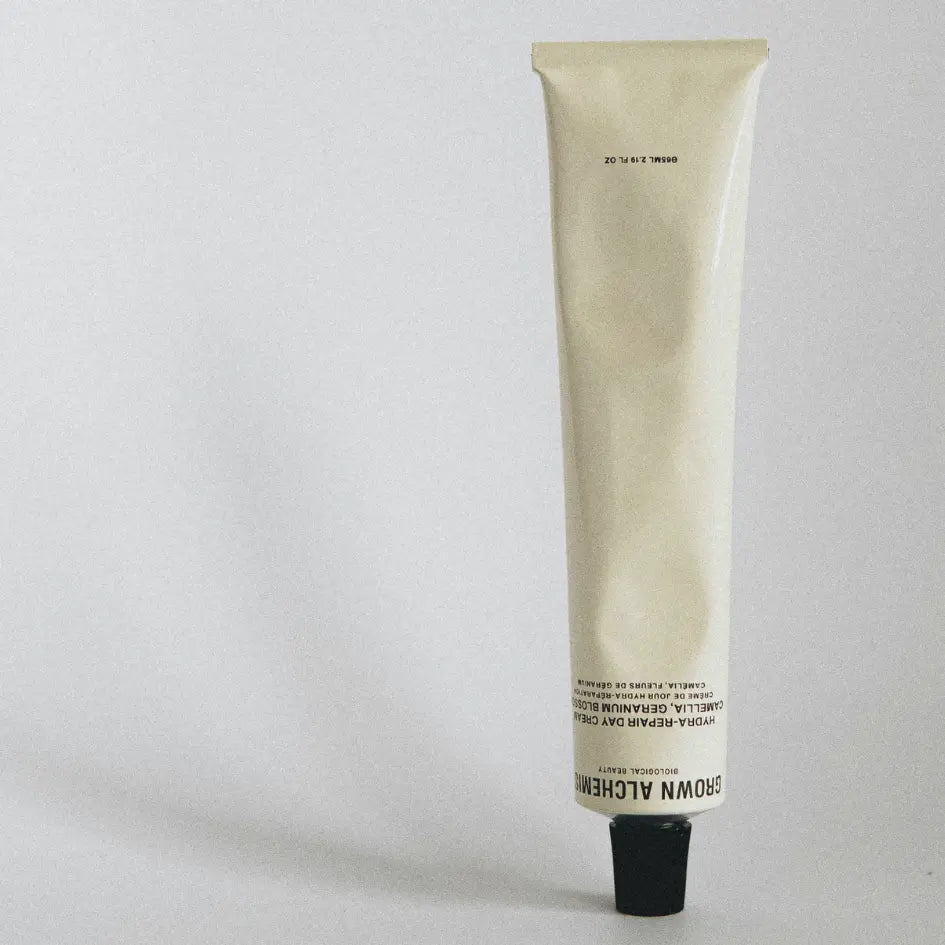Project Reef
Our ratings are based on a scale from 1 (Avoid) to 5 (Top Choice).
See how we rate.
The Shifting Gaia rating evaluates brands based on sustainable practices, ingredients and materials, and social responsibility, among others. Below are a few factors influencing this brand's score:
overview
about
Project Reef produces reef-safe mineral sunscreens and sun care products. Highlights
• Reef-safe zinc oxide
• PCR & aluminum packaging
• Climate Neutral certified
• Plastic Negative certified
• Certified B-corp
• Ocean Positive Certified
sustainability
details:
Packaging
Its sunscreen tubes are made partly from ocean-bound and post-consumer recycled (PCR) plastic, reducing virgin plastic use. The mist products come in aluminum spray cans (a forever recyclable) that use non-aerosol bag-on-valve technology instead of harmful propellant gases. For solid products, the brand uses innovative biodegradable materials. For example, the Sunstick and lip balm tubes are made with an “Eco Smart” plastic designed to biodegrade in days.
The brand is Plastic Negative Certified, meaning that it removes more plastic from the environment than it uses. In practice, Project Reef funds the removal of 1 pound of ocean-bound plastic for every product purchased.
Overall, Project Reef's packaging is thoughtfully designed with recyclability and recycled content in mind, and it goes beyond many competitors by utilizing ocean-bound PCR plastic and biodegradable plastics, though plastic components remain present.
Ingredient Sustainability
Project Reef's product formulas rely heavily on mineral and plant-based ingredients, which tend to be renewable and biodegradable. All sunscreens use non-nano zinc oxide (reef safe) as the only active UV filter, avoiding the petroleum-based chemical filters common in conventional sunscreens.
Crucially, the formulations are reef-friendly and free of environmentally persistent substances like silicones or microplastics. Instead of silicone oils, Project Reef uses biodegradable emollients such as Capryloyl Glycerin/Sebacic Acid Copolymer and Diheptyl Succinate.
There are minimal fossil-derived synthetics present – a few functional ingredients like phenoxyethanol (preservative) or butyloctyl salicylate (an emollient/UV stabilizer) appear in the lotions.
Energy Use and Footprint
Notably, the company is Climate Neutral Certified, meaning it measures, reduces, and offsets 100% of its carbon emissions each year across Scope 1, 2, and 3 sources. In addition, Project Reef is a Certified B Corporation, which holds it accountable to transparency and continuous improvement in environmental performance.
One area of strength is the brand's candid disclosure of its footprint (via the Climate Neutral platform) and third-party validation of carbon neutrality, which is still relatively rare in the beauty industry.
Waste Management
The brand is Plastic Negative Certified, meaning that it removes more plastic from the environment than it uses. In practice, Project Reef funds the removal of 1 pound of ocean-bound plastic for every product purchased.
Within its own operations, Project Reef has room to disclose more about internal waste reduction. However, as a Certified B Corp, the company would have had to assess and mitigate waste in its production process to some degree, and its small-batch manufacturing likely limits excess waste generation.
Business Model
On the positive side, the company maintains a focused, durable product line without excessive or frequent launches. Since its launch in 2022, it has introduced only a handful of core products. The brand also invests in consumer education, which is a key aspect of mindful consumption.
That said, Project Reef has not yet implemented reuse or refill models that would directly reduce consumption of new packaging. All products are sold in one-time-use containers with no refill pouches or return program, and no bulk sizes are offered for those who might want to reduce packaging frequency.
non-toxic
details:
Our representative analysis confirms the absence of parabens, phthalates, sulfates, PEGs, ethanolamines (e.g. TEA/DEA), formaldehyde-releasing preservatives, and synthetic fragrances. In place of synthetic fragrance, a touch of natural vanilla (vanillin) is used for a mild scent, avoiding phthalate-laden perfume ingredients.
All sunscreens are oxide-based (zinc oxide) and contain none of the chemical UV filters (like oxybenzone, octinoxate, octocrylene, etc.) known to cause hormonal disruption in humans and irritation on skin.
Importantly, full ingredient transparency is provided: Project Reef lists every ingredient for each product publicly on its website.
social responsibility
details:
The Certified B Corp status also suggests that Project Reef had to meet certain standards for worker treatment and social responsibility in its assessment, although the specifics are not disclosed. However, when it comes to sourcing transparency and fair labor in the supply chain, there is little information available. The brand does not publish a supplier code of conduct or details about where its raw ingredients come from.
All of its products are 100% cruelty-free, meaning no animal testing is conducted at any stage of product development. The brand explicitly labels its products as “cruelty free” and also “vegan”, indicating that they contain no animal-derived ingredients.
Project Reef has established formal partnerships with respected marine conservation and coastal community organizations. It is a corporate partner of the Coral Reef Alliance, supporting coral restoration and environmental education initiatives in Hawaiʻi. The brand also supports Captains for Clean Water, which advocates for waterway restoration in Florida (addressing issues like Everglades runoff). Project Reef's partnership with Tidey in Guatemala goes beyond environmental cleanup; it also has a strong community dimension. Project Reef goes a step further by being certified “Ocean Positive” through SeaTrees (run by Sustainable Surf). This means the company actively contributes to restoring blue carbon ecosystems. For every product sold, Project Reef helps plant or protect coastal habitats.






